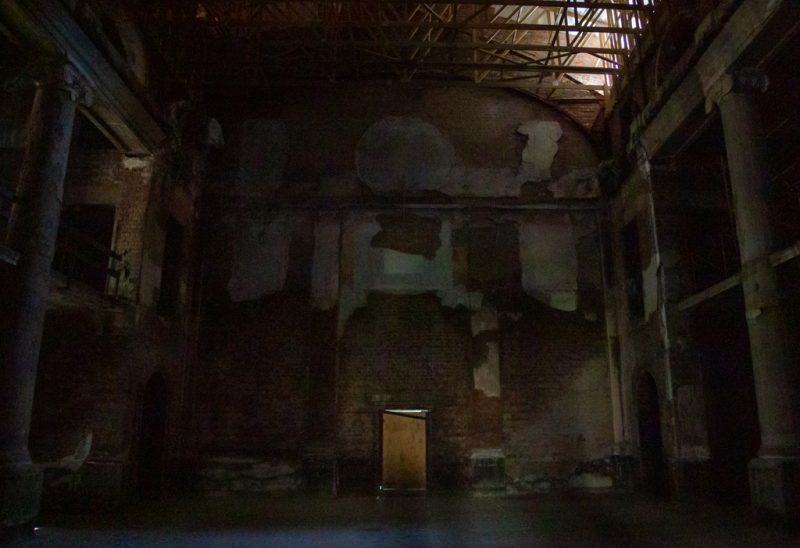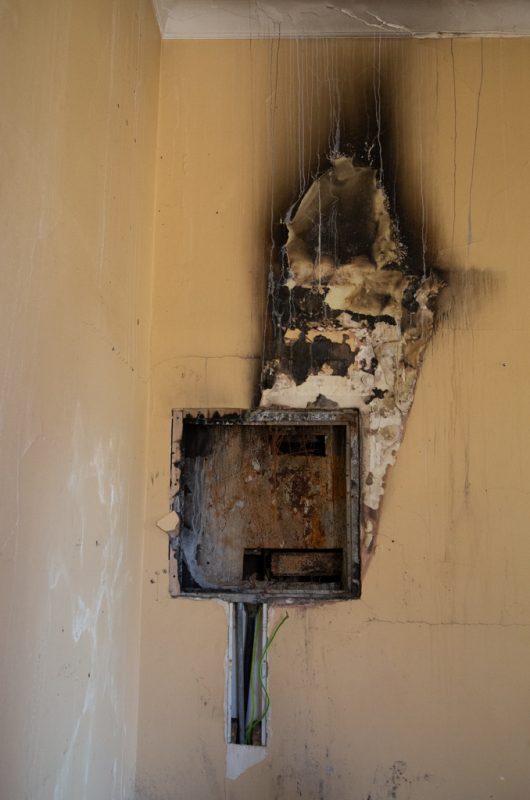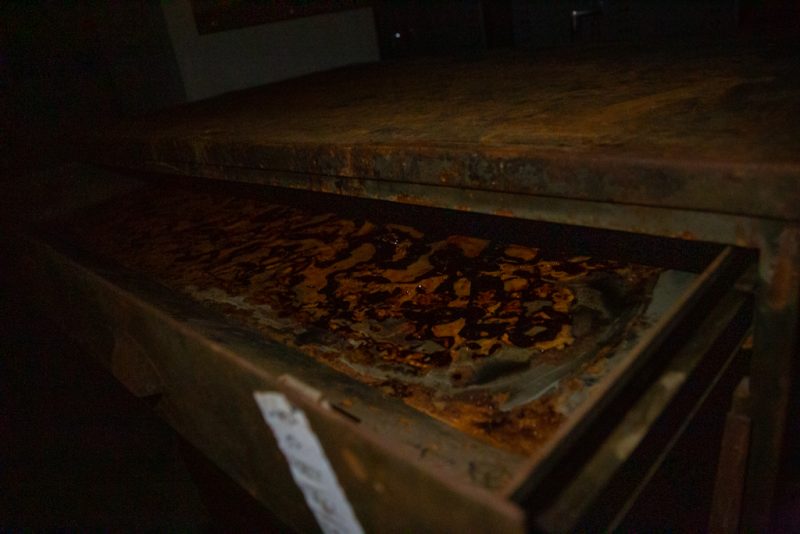Item Cannot Be Displayed: Refusal as a Modality of Care
Carine Zaayman
→
(Vrije Universiteit and Research Center for Material Culture/ Nationaal Museum van Wereldculturen)
This is the knowledge that most African people do not have; they do not know that these bones of their African ancestors are there. When you are exposed to this, the full gravity of the situation weighs upon you as you realise you are dealing with something much bigger than yourself, centuries-long colonial violations. In short, I had found myself in the centre of evidence of the colonial crime scene.
—Wandile Kasibe
To be a South African means to be constantly conscious of your relationship to the past. For us, the past is not an abstract subject but is something we recognise as shaping the fabric of our physical and inner worlds. Scholars and artists from South Africa are driven to engage the difficult legacies of colonialism time and again. Yet the narratives that we identify as ‘history’ are as contested as they are present. Where do the material remains of the past, serving as the sources of ‘history’, live? What does it mean to care for such objects? These are some of the questions haunting those who, like me, are invested in finding just ways of telling the stories of the past, and especially in making visible the absences of untold stories.
Some objects from the South African past have found their way into archives and collections within the country; one such collection recently faced great peril.1 The globally dispersed community connected to the University of Cape Town awoke on the 18th of April 2021 to scattered reports of a fire on Hoerikwaggo (also known as Table Mountain). At first, we heard that the restaurant at Rhodes Memorial had suffered major damage from an exploding gas bottle. Some of us may have thought wryly, “Rhodes is at it again.” But then the wind shifted and fanned the flames towards UCT’s upper campus. Students were evacuated and buildings cleared. Before long, a frightful image lit up computer screens and mobile phones around the world: The Jagger Library was on fire!

Swiftly, scholars, activists and artists began enumerating what was at risk as the flames tore through the building: The university’s special collection, comprising photographic collections from the struggle against apartheid, archival documents and out-of-print-books—all faced irredeemable peril. Several commentators reminded us that the priceless trove of |xam histories, the Bleek and Lloyd archive, was lodged in a basement of the library. “Was the material digitised?” many asked, disregarding perhaps the ways in which archival documents are more than their text, more than what can be reproduced purely intangibly, immaterially. After waiting breathlessly for the salvage operation to start, reports of what had been lost emerged in the following days. Bleek and Lloyd was safe, thankfully, but around 70,000 books and 3,500 DVDs featuring historical film and government documents from across Africa had been destroyed. The African Studies Collection, lodged in the library, held many treasures from the African continent, including resources for gender studies, media studies, HIV/AIDS research and African languages studies. As the salvage operation continues one year after the fire, a comprehensive list of what was ruined is still being collated.

Shock and sadness in the wake of the event were quickly followed by realisations that as it destroyed, the fire might in many ways also reveal, making sensible some dynamics of archive. Images taken by volunteers in the salvage operation circulated on social media. Some of the damaged but partially legible material brought into view in this way had not been consulted for years. The fire also made visible the precarity of archives, their fragility in the face of disasters such as this fire. Other, more intangible things also became visible in the aftermath of the fire. For example, the attachment felt by researchers was palpable, but so too was that of those who had deposited material there in the interest of preservation. This attachment to ‘mere matter’ was in itself telling, however. Many observers pointed out the irony inherent in the collective outcry over the loss of library material, even as fires wreak havoc in informal settlements across the Western Cape every summer, attracting far less attention, concern and, especially, action. We further came to understand that it was not only a connection with the past that had been ruptured, but also one to the future: Future work on the lost material had now been fundamentally affected, potential scholarship and archival engagement rendered forever unrealisable. In the collective mourning of the material destroyed by the fire, what was it that we feared was lost? When these fires raged, it was not ‘history’ as such that was in peril, but the site we designated to hold the deposits of our past. As the fire moved us towards collective mourning, I wondered whether we were not forgetting the ways in which archives have failed us.

With the Jagger Library fire, the strong emotions it elicited and the complex questions it surfaced still fresh in my mind, I presented the first of two iterations of a workshop in May 2021, as part of the Inward Outward symposium edition which centered on emotion in the archive. As is the case with many post-colonies, several objects from the South African past are located outside its borders. Wandile Kasibe, for instance, traced various human remains from southern Africa held in collections in the Global North. Highly publicised debates and activism around the restitution of these remains, as well as objects looted from the continent of Africa, make apparent that the loss with which (South) African collections have had to contend entails not only the kind of destruction occasioned by the Jagger Library fire but a foundational, originary loss. As an initiative, Inward Outward seeks to compel institutions in Europe to address their complicity in the production of this loss, as well as how these institutions maintain and extend it.
Inward Outward invited participants to the workshop whose daily work entailed the care for archival holdings and collections of materials that bear burdens of coloniality and extraction. It was designed to be a space in which participants could engage critically with materials under their care and to develop strategies for their mobilisation. Instead of approaching archival collections as inert sources, the workshop aimed to consider how various affective encounters with archival materials can inform such ethics of care. It was conceived to provide an opportunity for participants to share the challenges they face and to learn from one another’s experiences. We did not seek to preclude any methodologies for working with challenging material; instead, the workshop endeavoured to help imagine creative and practical ways through which to resee and reframe them, and to recognise and deal with the emotional valences they carry.
The workshop posed the following questions to organisers and participants alike:
- How do emotional responses from archive work¬ers, researchers and activists to material kept in our institutions offer insights into and lead to otherwise unthought of means of connecting with the past?
- On the basis of these responses, which strategies can workers in institutions employ to imagine archival practices anew?
- Can silence, refusal, disruption and even destruc¬tion be understood as productive curatorial prac¬tices that aid in unlearning imperialism when engaging colonial archives and archives of coloniality?
Upon invitation, each participant was asked to bring a piece of material from the archive or collection with which they worked that called attention to methodological questions of care and display. Before sharing the material in the workshop, we discussed ethical considerations around showing this material to the group. In the first iteration of the workshop, the group decided not to display to one another the material they had brought. This decision was reached by a consensus predicated on contributions from participants who expressed their fatigue with consistently encountering difficult material in the course of their professional work. Our conversation focussed on the divergent ways in which museum and archive workers are affected by materials in collections. In particular, people of Colour and those from diasporic communities working in European institutions more often have to process difficult emotional responses than their white counterparts, for whom such material is conventionally more ‘distant’. How do institutions deal with the fact that the (colonial) past is for some more present than for others, and is in some places more than others?
Even as it steered us outside the ‘planned’ programme of the workshop, our decision not to show the materials opened a space for conversation around the interrelation between the contents of a collection and the institutional structures that govern its custodianship. Exhibitions constitute the public face of organisations such as museums, but behind these welcoming veneers often lurks turmoil. Institutions are composed of people, and, as many of the participants indicated, the conditions of archival labour remain entrenched in colonial modes of knowledge production as well as interpersonal interactions.
My recollection of that moment of togetherness in the workshop is most prominently characterised by our collective assertion that when we speak of ‘caring’ within archives and collections we are also referring to caring about those who work with them every day. The collective decision to push against the impulse of ‘showing’ was an act of refusal, of acknowledging that the significance of archival material exceeds any notion of ‘scientific knowledge’ purportedly at the heart of European institutions. It was a powerful moment that afforded a central space to the emotions of those—both within and beyond institutions—who know that the way in which stories about the colonial past is narrated shapes life in the present.